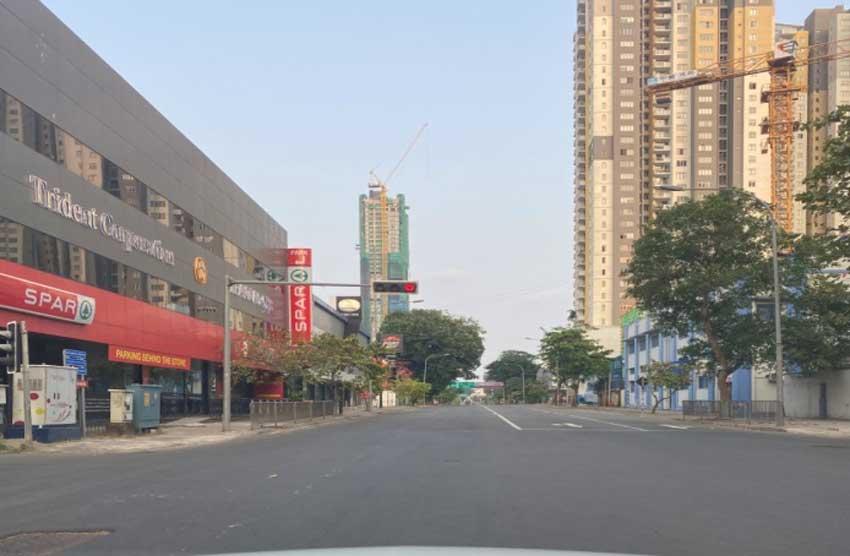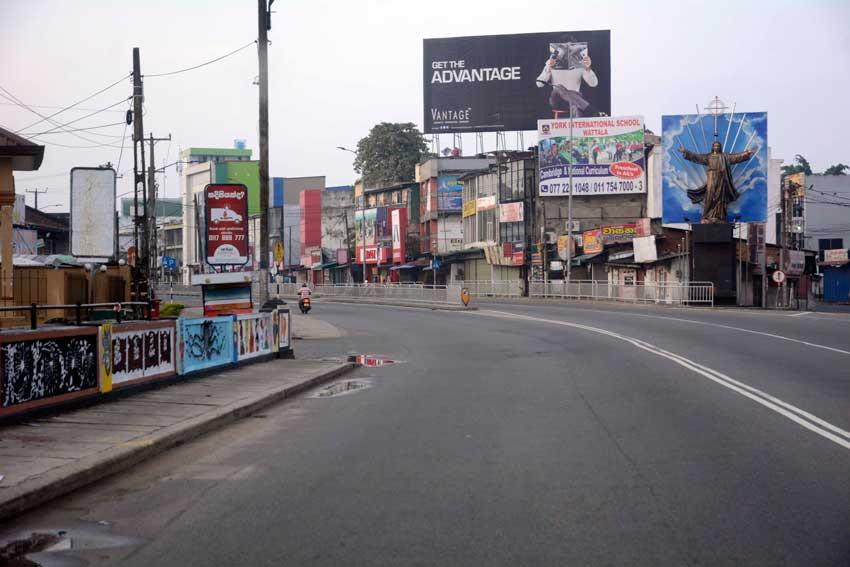31 Mar 2020 - {{hitsCtrl.values.hits}}

Colombo facing a shutdown to slowdown the spread
 Sri Lanka is battling to control the coronavirus by getting the critical government machinery into full gear to put an end to the crisis and has set an example in taking preventive measures to gain control over the epidemic.
Sri Lanka is battling to control the coronavirus by getting the critical government machinery into full gear to put an end to the crisis and has set an example in taking preventive measures to gain control over the epidemic.
What’s going on right now is unprecedented in our history, and so it’s hard to assess what the real impact will be, both socially and economically.
There’s also a great deal of uncertainty; both in terms of how the pandemic will unfold, and how individuals, businesses, and policymakers should and will respond. The pandemic is truly a test for all of our leaders and society.
Preparedness
A 2015 Ted Talk by Bill Gates viewed by more than 16 million times on YouTube, Gates sounded the alarm on the world’s lack of preparedness for the next global disease .
Gates commenting on the current pandemic said the world’s most powerful country the United States acted far too slowly on the emerging COVID-19 pandemic and missed its chance to avoid mandatory shutdowns and the shutdown is sure to damage its economy, Gates said “It’s disastrous for the economy, but the sooner you do it in a tough way, the sooner you can undo it and go back to normal,”.

Helping the poor
For the daily wage worker and the poor the pandemic is a major blow. They consistently get ignored, reaffirmed in the response to COVID-19. It also demonstrates how susceptible the poor are, and how the close down increases their vulnerability.
The ground realities now require the response to include mitigation measures that protect the vulnerable against adverse consequences.
Since the poor are more susceptible than the affluent, they suffer disproportionately from the sudden curtailment measures. Therefore, informed policy making is critical especially when safety nets are weak.
The decisions must be made based on data. But due to the lack of it over-reacting to help them by both the government and the private sector is totally justifiable. Because supporting the poorest is essential because this pandemic cannot be defeated for any of us until it is defeated for all.
Way forward
The shutdown obviously is to slow the spread and justifies the high cost of the shutdown, because all stakeholders share the overarching priority of putting health and safety first. However, when there is evidence of a drop in the rapid community transmission, a gradual approach is probably best.
The strategy would be to manage with a combination of border controls and domestic social distancing measures stopping mass gatherings, but not threatening livelihoods.
An unsustainable shutdown should be the last resort, and that too the required data should support it. The world economy according to economists cannot survive the current social distancing for more than a few weeks. At the sectoral level, tourism and travel-related industries will be among the hardest hit. The economic impact has also quickly spread to the financial markets, and most international indices have declined at least 20+ percent.
Therefore a viable strategy to address the joint health and economic crisis caused by COVID-19, which involves according to medical experts gradually sending the young who face the lowest risks back to work on a voluntary basis. This should happen according to them as soon as the congestion of healthcare systems is less critical, but while a large fraction of the population is not yet immune.
Furthermore according to them all of these workers in critical sectors should be temporarily separated from the vulnerable. They must also be frequently tested for COVID-19 and for subsequent immunity as well as monitored. The economy and society post COVID-19 is bound go through a big phase of change and what the end will be, is still hugely unknown.
The extent of the impact will depend on how quickly the virus is contained, and how much economic support governments are willing to deploy during the epidemic’s immediate impact and aftermath. The longer the virus spreads, the more economic and company performance will get impacted, especially for highly indebted countries
and companies.
(The writer is a thought leader)
25 Dec 2024 9 hours ago
25 Dec 2024 25 Dec 2024
25 Dec 2024 25 Dec 2024